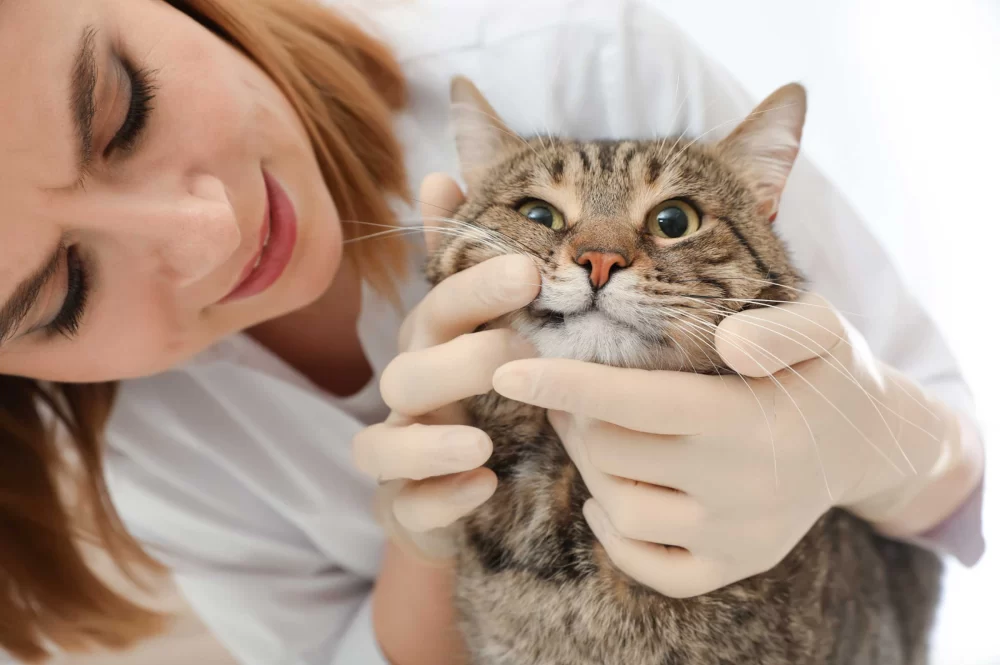Taking Proper Care of Your Pet to Prevent Infections
As a pet owner, ensuring that your furry friend stays healthy is one of the most important responsibilities you'll ever have. Pets, much like humans, are vulnerable to infections that can affect their overall health and well-being. However, with the right care and preventive measures, you can significantly reduce the risk of infections and help your pet live a long, happy life. I’ve experienced firsthand how small changes in pet care can have a big impact on preventing infections, and I want to share these insights with you.
1. The Importance of Regular Vet Check-ups
One of the best ways to keep your pet healthy and infection-free is through regular veterinary check-ups. These visits allow your vet to catch early signs of potential infections or health issues before they become serious. During routine check-ups, vets perform thorough exams, which include checking your pet’s ears, eyes, teeth, and skin for any signs of infection. It’s also the perfect opportunity to keep up with necessary vaccinations and parasite prevention treatments.
I remember when my dog, Bella, started scratching incessantly. I thought it was just dry skin, but after a vet visit, I learned it was actually an early sign of a bacterial skin infection. A timely visit saved her from a lot of discomfort, and with proper treatment, she was back to her playful self in no time.
2. Keeping Your Pet Clean and Groomed
Good hygiene is key in preventing infections. Regular grooming can help prevent skin conditions and infections caused by bacteria or parasites. This includes brushing your pet’s coat to remove dirt, debris, and loose hair. Regularly bathing your pet with the right shampoo can also help keep their skin healthy, but avoid over-bathing, as it can dry out the skin and make it more susceptible to infections.
For example, my cat, Whiskers, used to have a persistent problem with ear infections. After some research, I found that regular ear cleaning, along with a balanced diet, helped reduce his susceptibility to ear infections. It was a simple change, but it made a huge difference!
3. Proper Nutrition for Immune Support
A healthy diet is one of the most effective ways to support your pet’s immune system. A strong immune system helps fight off infections, keeping your pet healthier overall. Make sure your pet is eating high-quality food that meets their nutritional needs. This varies depending on their age, size, breed, and any pre-existing conditions they may have.
When I switched Bella to a more nutrient-rich diet that was specifically designed for her breed, I noticed a significant improvement in her energy levels and overall health. She became less prone to infections and had a shinier coat. It was clear that her nutrition played a huge role in boosting her immune system.
4. Parasite Prevention: Fleas, Ticks, and Worms
Parasites like fleas, ticks, and worms are a major cause of pet infections. These parasites can lead to serious health problems, including skin infections, Lyme disease, and intestinal infections. It’s crucial to protect your pet by using preventive treatments like flea and tick medications and deworming treatments. Depending on where you live, certain parasites are more prevalent, so speak with your vet about the best options for your pet.
In my case, I learned this the hard way. Bella once contracted a tick-borne illness, which caused her to develop a fever and fatigue. After treating her with a tick prevention medication, we were able to avoid any further issues, and she’s been free from ticks ever since. Regular check-ups and preventative treatments made all the difference.
5. Maintaining a Clean Living Environment
Keeping your pet’s environment clean is just as important as personal hygiene. Whether you have a dog, cat, or any other type of pet, their living space should be regularly cleaned and sanitized. Pet bedding, toys, and feeding areas can harbor bacteria, parasites, and allergens that may contribute to infections. A clean environment reduces the risk of infection and promotes overall well-being.
I make it a point to wash Bella’s bedding every week and disinfect her toys regularly. It’s a small effort that goes a long way in preventing infections. Whiskers, too, has a designated space in our home that I make sure to clean daily. This simple practice has helped keep them healthy and infection-free.
6. Keeping Your Pet Hydrated
Proper hydration is another crucial factor in keeping infections at bay. Dehydration can weaken your pet’s immune system and make them more susceptible to infections. Ensure your pet always has access to clean, fresh water. If you have a cat, make sure they’re drinking enough, as cats tend to be less enthusiastic about drinking water compared to dogs.
Whiskers had a slight urinary tract issue once, which worsened due to dehydration. Since then, I’ve been much more mindful about encouraging him to drink water, and he’s been much healthier as a result. Simple adjustments like adding a water fountain for cats or providing more water bowls can make a big difference.
7. Recognizing the Signs of Infection Early
As a responsible pet owner, it’s important to know the signs of infection. These can include symptoms like excessive scratching, redness or swelling on the skin, coughing, lethargy, loss of appetite, or changes in behavior. If you notice any of these signs, don’t hesitate to take your pet to the vet. Early intervention can prevent the infection from becoming more severe.
I’ve learned that paying attention to my pets’ behaviors and appearance is key. Bella’s sudden lack of interest in her favorite toys was a red flag for me, and a quick trip to the vet revealed that she had a mild ear infection. Thanks to prompt treatment, she recovered quickly, and the infection never spread.
8. Stress Management and Infection Prevention
Believe it or not, stress can contribute to a weakened immune system in pets, making them more prone to infections. It’s important to create a stress-free environment for your pet. Ensure they have plenty of mental stimulation, exercise, and quiet time to relax. A calm, happy pet is much less likely to fall ill.
I noticed that when Bella had a more structured routine and plenty of playtime, she was much less stressed and healthier overall. Whiskers, too, thrives on a regular routine and time to explore safely indoors. This helps them both stay infection-free and maintain a healthy immune system.
9. Providing Mental and Physical Stimulation
In addition to managing stress, providing your pet with both mental and physical stimulation can contribute to their overall health. A bored pet is more likely to develop health issues, including infections. Activities such as interactive toys, training, and outdoor exercise can keep your pet's mind and body active, which helps maintain a strong immune system.
Since adding more interactive games to Bella’s daily routine, I’ve noticed a significant improvement in her behavior and health. Not only is she less anxious, but she’s also less likely to pick up infections. These small changes have paid off in ways I didn’t expect!
10. Socialization and Infection Prevention
Finally, socializing your pet with other animals is important, but it’s essential to ensure they are properly vaccinated and protected before exposing them to new environments. This is especially true for dogs, who often visit parks or boarding facilities where they could be exposed to other pets. Socialization should be done in a controlled way to prevent exposure to potential infections.
When Bella started attending dog parks, I made sure she was up-to-date on her vaccinations. She loved meeting new dogs, and I always kept an eye on her for any signs of illness afterward. By taking these precautions, I’ve kept her safe while allowing her to enjoy socializing with other pets.
By following these simple steps and maintaining a proactive approach to pet care, you can help prevent infections and ensure your pet enjoys a long, healthy life. Regular check-ups, a clean environment, proper diet, and good hygiene are just a few of the essential practices that contribute to infection prevention. Your pet relies on you for their health and happiness, and taking these steps will reward both of you with many years of companionship.












